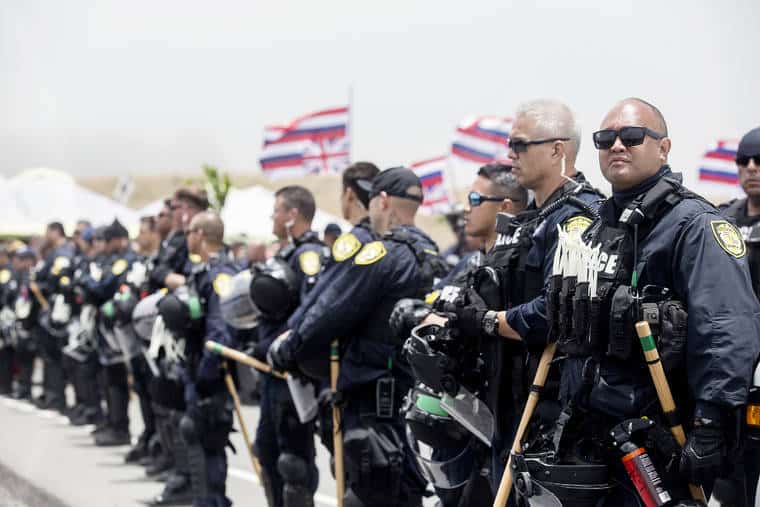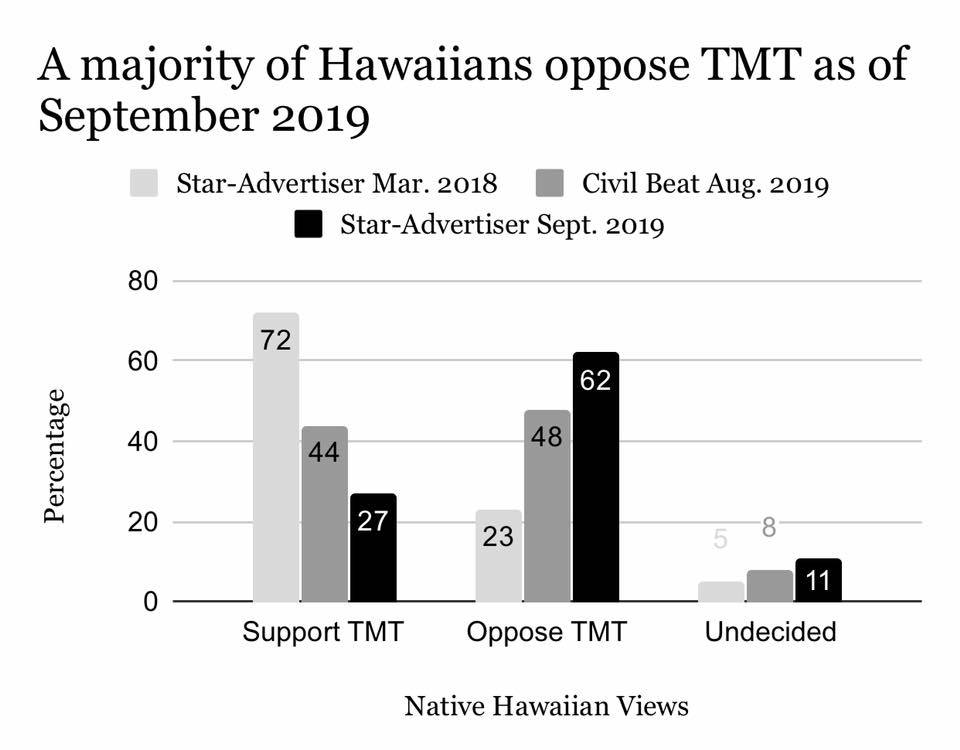Commending CASCA’s decision NOT to support TMT without Native Hawaiian Consent
One of the TMT project’s biggest and long standing supporters, the Canadian Astronomical Association (CASCA), now proclaims that “unless the TMT project has consent from the Native Hawaiians, Canada’s astronomical community cannot support its construction on Maunakea.”
One of the TMT project’s biggest and long standing supporters, the Canadian Astronomical Association (CASCA), now proclaims:
“Unless the TMT project has consent from the Native Hawaiians, Canada’s astronomical community cannot support its construction on Maunakea.” This statement was shared by Dr. Kim Venn this past Tuesday at CASCA’s Annual Meeting that CASCA is holding online this week. Dr. Venn is one of three Canadian TMT Board Members and a member of the CASCA/ACURA TMT Advisory Committee (CATAC).
Many of us also saw a screenshot of Dr. Venn’s presentation slide shared by Dr. Bryan Gaensler on Twitter. Dr. Gaensler is CASCA’s co-chair of its Long Range Plan 2020 Panel.
Also conveyed in the screenshot shared by Dr. Gaensler of Dr. Venn’s presentation was the following:

“As excited as we are about the scientific potential and engineering excellence of the TMT, we believe that astronomical discovery cannot come at the expense of human rights for the people on whose lands we operate our telescopes — anywhere in the world. This position is consistent with CASCA’s Long Range Plan 2020.” Indeed, CASCA’s Long Range Plan (p. 115) notes the following:
“The nature of astronomy is such that sites in isolated or sparsely populated areas often best meet the scientific requirements for experiments and observatories. As a consequence, astronomy has long benefited from building telescopes and other facilities on carefully chosen locations in Canada and throughout the world (e.g., Hawai‛i, South Africa, Australia, Chile). However, these same sites often either belong to or have substantial cultural, environmental or economic significance to Indigenous Peoples, traditional title holders or other long standing local communities.
“Unless the TMT project has consent from the Native Hawaiians, Canada’s astronomical community cannot support its construction on Maunakea.”
– Dr. Kim Venn, TMT board member, and a member of the CASCA/ACURA TMT Advisory Committee (CATAC)
“There have been many instances when astronomy projects have gone ahead over the objections of Indigenous Peoples, or where commitments or promises made by astronomers to local communities have not been fully met. Looking to the future, Canadian astronomers must ensure that their ethics and values apply to the interactions with society that result from the creation and operation of astronomical facilities. The astronomy community must consequently engage meaningfully and sincerely with Indigenous and local communities as soon as potential projects are conceived, should seek consent from those who would be affected before proceeding with a project, and must sustain engagement and consent throughout the lifetime of projects that go forward.”
As a result, the CASCA Long Range Plan (p. 16) offers this conclusion:
“We recommend that the Canadian astronomical community (e.g., ACURA, CASCA and NRC-HAA) work together with Indigenous representatives and other relevant communities to develop and adopt a set of comprehensive guiding principles for the locations of astronomy facilities and associated infrastructure in which Canada participates. These principles should be centred on consent from the Indigenous Peoples and traditional title holders who would be affected by any astronomy project. In addition, when such consent does not exist, the principles should recognize that the use or threat of force is an unacceptable avenue for developing or accessing an astronomical site. The principles should also acknowledge that ongoing consent from Indigenous Peoples and continuing consultation with all relevant local communities are both essential throughout a project’s lifetime. These principles should be developed as soon as possible, and then applied to all future Canadian participation in new or existing astronomical programs, projects and national and international facilities. Engagement and implementation should be consistent with the spirit of the Calls to Action of the Truth and Reconciliation Commission of Canada and of the United Nations Declaration on the Rights of Indigenous Peoples.”

We commend CASCA and its members who are affirming that absent consent of Native Hawaiians, the TMT cannot be built and that the use or threat of violence is not an acceptable course of action to access astronomical sites.
Links:
- CASCA website: https://casca.ca/
- TMT Board Members: https://www.tmt.org/page/governance
- CASCA’s Long Range Plan: https://casca.ca/wp-content/uploads/2021/04/20UOT001_CASCA_LRP_EN_vFA2.0.pdf
- Truth and Reconciliation Commission of Canada: https://www.rcaanc-cirnac.gc.ca/eng/1450124405592/1529106060525
- Truth and Reconciliation Commission of Canada, Calls to Action: http://trc.ca/assets/pdf/Calls_to_Action_English2.pdf
- United Nations Declaration on the Rights of Indigenous Peoples: https://undocs.org/A/RES/61/295
